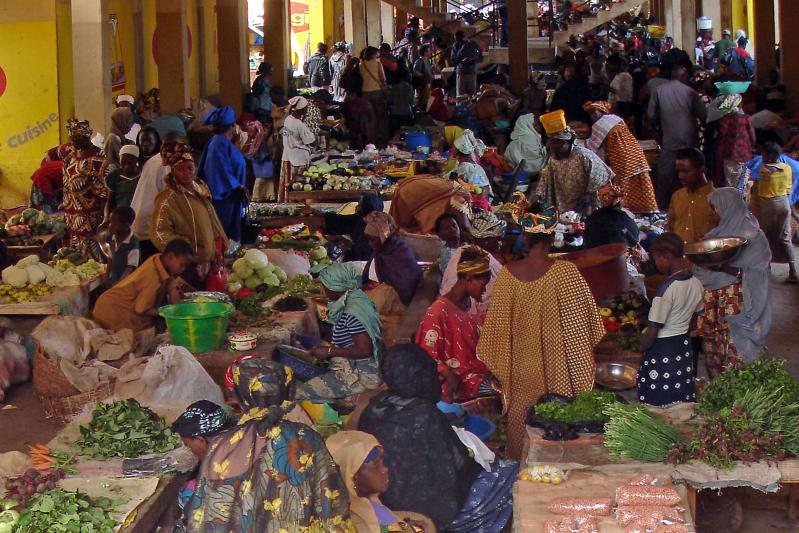By Caroline Moss
Atelier Masomi, an architectural studio, is helping to grow the economy in the village of Dandaji in Niger. Led by lead architect Mariam Kamara, who was raised in Niger, the studio designs its spaces to socially empower individuals and provide a better quality of life. Kamara recognized that markets previously were temporary and had no permanent space. This constant movement of the markets made it difficult for entrepreneurs to both sell and procure goods. Kamara knew that creating a permanent market would provide the community with a consistent and reliable place to gather for commerce, something that would be sure to help the economy grow.
The design of the structure is very simple. It is designed around an ancestral tree, where the weekly transient markets used to take place. Now, the space has become a public gathering place with seating arrangement . There are 52 enclosed market stalls located close to the public space. The stalls were designed to be practical and durable enough to last for decades. The bricks used to build these stalls are made from compressed earth to help cool the space allowing the vendors to work through the day despite temperatures that exceed 100°F.
Recycled metal was used to create shade, making up for the area’s lack of trees. The metal shades are painted yellow, blue, and green, creating a whimsical feeling and drawing villagers into the marketplace.

By building the regional market, Alelier Masomi provided new opportunities for the Dandaji villagers. Kamara hired local villagers as masons to work on the project, which both provided work for the villagers and allowing Masomi to transfer his knowledge and skills to the local community. The project has instilled pride in local residents and added to the village’s sense of community.
When a well is drilled in a village, there is a similar increase in community spirit and pride. In villages where Wells Bring Hope works, that community building begins even before the well is drilled, when a committee is formed to manage the well, handle malfunctions, and obtain new parts. The villagers also establish a maintenance fund, to which everyone in the village contributes, creating a feeling of “ownership.” Reliable access to safe water, allows individuals to have more free time to take care of their families and to pursue income-generating work. The market at Dandaji is a great example of how individuals can use time that is freed up when they do not have to walk for water to provide for their families, but as always, the first step is having access to clean water.
“Atelier Masomi.” Atelier Masomi, www.ateliermasomi.com/.
Guernieri, Marianna. “Mariam Kamara: We Are Not Using the Knowledge We Have That Is Centuries Old.” DOMUS, 10 June 2019, www.domusweb.it/en/architecture/2019/06/10/mariam-kamara-we-are-not-using-the-knowledge-we-have-that-is-centuries-old.html.
“How We Work.” Wells Bring Hope, www.wellsbringhope.org/how-we-work/.
Ladanyi, Olivia. “Colourful Metal Canopies Shade a Regional Market in Rural Niger by Atelier Masomi.” Dezeen, Dezeen, 25 Nov. 2019, www.dezeen.com/2019/08/23/dandaji-market-niger-atelier-masomi-architecture-infrastructure/.

